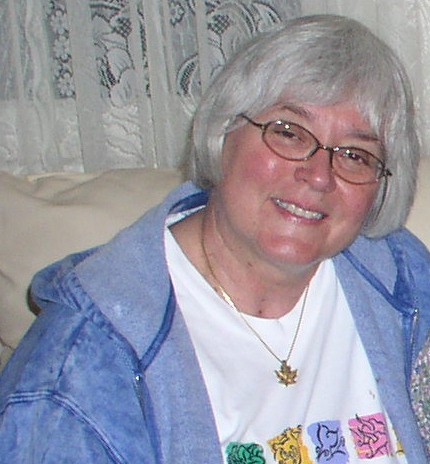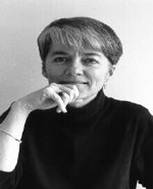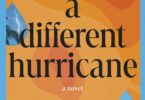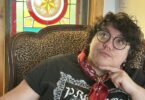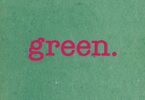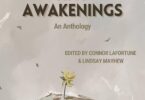By Joy Fisher
I never knew Candis Graham. She died in Victoria, BC, in 2005, two years before I moved there. In 1994, when she was still living in Ottawa, she told an interviewer, “I write for lesbians.” She wrote for me, but I didn’t know that, either—not until 2012 when I was chosen to receive the Candis Graham Writing Scholarship sponsored by the Lambda Foundation Fund, a nonprofit organization supporting studies by students across Canada in gay and lesbian issues. As a recipient, I was invited to tea at the Faculty Lounge on the University of Victoria campus to meet Pat McKenna, Graham’s partner, who had set up the scholarship after Graham’s unexpected death of an aneurysm at age 56. McKenna, an arresting woman with long, unruly white hair, gave me a copy of Graham’s second book of short stories, Imperfect Moments, published in 1993, which had been nominated for the American Library Association Gay and Lesbian Book Award. Later, when I opened it, pressed flowers fell from the book, a silent gift from a benevolent spirit. McKenna laughed when I told her and assured me Graham had put them there.
“She had a big heart, and a playfulness,” McKenna told me, in keeping, perhaps, with her Valentine’s Day birthday. I found myself wanting to know more about this lesbian writer who was my benefactor. When I interviewed people who had known her and then read her work, which is archived at the University of Victoria, I discovered we had travelled two very different roads on our respective journeys to becoming writers.
Getting Started
I don’t know much about Graham’s childhood experiences with writing, if there were any, other than that there were always books in her family home and her mother, in particular, was always supportive of her ambitions once they surfaced.
According to her friend Marie Robertson, Graham started to write in 1974, during “a life-changing time.” She had just left her husband, was questioning her sexuality and often hung out at the Waterloo, Ontario, Women’s Centre. Robertson remembers that once Graham started writing, she dedicated herself to it, became obsessed with it. At first, she wrote in journals; she “had journals and journals and journals.” After she moved to Ottawa, Graham lived in a tiny little apartment in the Glebe; Robertson remembers her sitting at her kitchen table, the sun shining in, writing.
There were few books in my home, and it was my teachers who first spotted a certain facility I had with words, and encouraged my childhood ambition to become a writer. This ambition, however, smacked up against my shortcomings early when a well-meaning teacher sent me to talk to a colleague who wrote. I remember standing in an empty classroom of my Southern California junior high as this man unintentionally doomed the writing career of my dreams. It wasn’t his advice so much as his example that discouraged me. Pointing through the classroom window at a chicano boy shooting baskets by himself, this teacher said, “For example, I could write a story about that boy.” I looked at the boy on the basketball court and my heart sank. I couldn’t begin to imagine writing a story with this kid as the central character. I didn’t know anything about boys, let alone boys from a different culture than mine. If that’s what it took to write stories, I couldn’t do it.
Later on, I tried writing stories about girls, but I didn’t know much about them, either, even though I was one. I also discovered that I had no imagination. My stories died on the page after a few paragraphs for want of a plot. In addition, I found it impossible to describe what I saw in a way that brought it to life for the reader. My mother had taught me that it was impolite to stare, so I never looked at anything long enough to see details. A fiction writer I was not.
Still, there was this facility with words that continued to serve me as I made my way through school, and I slowly discovered it was coupled with an ability to employ my mind rationally. Unlike Joan Didion, who once wrote an essay called “Why I Write” in which she confessed that she had tried to think and failed, I discovered I was pretty good at thinking on the page. Nevertheless, by the time I left college in the early 1960s, I had no idea how this skill-set could help me become a writer.
Although I hadn’t studied journalism in college, I fell into a job as a newspaper reporter, and found that reporting suited both my writing talents and limitations. Digging for the facts satisfied my curiosity and freed me from the need to make up a plot, while the spare style of journalism absolved me of responsibility to write elaborate descriptions. I’d been hired onto the staff of the Las Vegas Sun shortly after the editorial offices had burned down, and I can remember sitting around the cramped quarters of our temporary newsroom one night after the paper had been put to bed talking with some of the other reporters and thinking I loved what I was doing so much I would build the building with my own hands if they asked me to—an expression of sheer exuberance by one blessed by serendipity.
Eventually, I left the Sun, moved back to Southern California and went to work for the Riverside Press-Enterprise, where my experience was very different: I was fired for opening a campaign office for Eugene McCarthy during the 1968 Democratic primaries. Shocked by this unexpected turn, I decided to go to law school so such a misfortune could never again befall me. I switched to freelance writing to accommodate my study schedule, and soon discovered the difference between steady and intermittent employment—a precipitous drop in income. The first year, I earned the grand sum of $600; the second, $1,200; the third, $2,400. If I hadn’t had a husband supporting me, I wouldn’t have survived. Later, on my own as a single lesbian, I remembered that experience and it made me cautious.
[expand title=”Testing our Mettle“]
Candis Graham and I both threw caution to the winds in the mid-1970s for the love of writing. In 1975, the last year my husband and I were together, I attended a six-week feminist retreat in Vermont where I heard about a new writing program for women. The program was taught by two lesbians, with guest lectures from icons of the women’s movement, including Rita Mae Brown, Marge Piercy and Kate Millett. The first class would begin in September.
I had already come out as a lesbian, and now I began to see a way to move forward with my life. The more I thought about it, the more certain I became that I should attend this new program. When I got home from the retreat, I told my husband I wanted to go to the Women’s Writers Center in upstate New York for a year. In September 1975, I packed my little orange Honda 600 with a year’s worth of clothing and my portable typewriter and drove away. Alice Doesn’t Live Here Anymore was still showing in movie theatres. Ellen Burstyn played a widow who hits the road, driving across country, determined to make a new life for herself as a singer after the death of her husband. All the way across the country, from California to New York, I thought about Alice. Alice and I, we were outward bound, on the road to our true destinies at last.
In 1977, Candis Graham travelled to England where she worked in a bookstore. When the immigration officer at Southampton asked what her occupation was, she replied: writer. Later, she recalled, “I waited for him to burst into laughter. Much to my surprise, he acted as if what I had said was the most natural thing in the world. I decided if he was prepared to take me seriously, I’d better take myself seriously.”
In a 1994 article, “Liberte, Egalite, Sororite,” published in Resist: essays against a homophobic culture, Graham wrote, “Since 1977, I have worked for part-time wages so I could devote time and energy to writing.” She admitted she felt conflicted about writing because of the financial constraints. “Writing gives me more joy and satisfaction than anything else I have ever done,” she wrote. “Writing also gives me a great deal of grief and anxiety. Sometimes I think I should give it all up, get a well paid full-time job with a dental plan and pension plan and save money for my old age.” But she also yearned to give up her waged work altogether so she could concentrate solely on her writing.
When I returned from upstate New York after writing poetry and studying women’s writing for a year, I was determined to keep on with a writing career. I moved into an apartment in the Echo Park neighbourhood of Los Angeles, within sight of Amiee Semple McPherson’s temple. My desk and typewriter occupied centre stage in the living room. I told myself this was a symbol that writing was to occupy a central place in my life. (The truth is my husband had claimed the living room furniture in the division of property; I had nothing else to put in my living room.) I landed an alternative job as a public speaker and speaker-trainer for the Gay Community Services Center in Hollywood, which paid just enough to keep my rent current and food in my cupboard. When I met two other women in a writing workshop at the Women’s Building downtown, we formed a writing group and published a book of poetry together.
But when the government funding for my alternative job ran out, I ducked into a full-time job as a lawyer for the State of California and stayed there until I retired— for the first time—in 1991.
This, then, was a key difference between Candis Graham and me: she stuck to her writing despite being conflicted about financial insecurity; I ran for cover. I don’t know how to account for this difference. It may have been, in part, generational—born in 1949, she was a “baby boomer,” while I, born in 1941, was the child of Depression parents. It may have been partly socioeconomic. Her parents were middle class, while mine were working class. Her parents often helped her out with gifts of money while she struggled financially; mine never could. It may have been a character difference: once she started calling herself a writer, Graham displayed an extraordinary commitment to writing for the rest of her life, while, after my early romance with journalism and flirtation with lesbian-feminist activism, I treated writing like a mistress to be enjoyed on the side. Or maybe she had succeeded in moving beyond mere ambition to purpose, something that eluded me. [/expand]
[expand title=”Discovering Purpose“]
The Black Atlantic writer Caryl Phillips tells a story about how his ambition to write transformed into purpose. Writing about himself in the third person, he relates this incident, which occurred while he was visiting California:
He buys a copy of a book that has on the cover a picture of a young man who looks somewhat like himself. He takes the book to the beach, and sits on a deck chair and begins to read. When he finishes Richard Wright’s Native Son it is almost dark and the beach is deserted. But he now knows what he wishes to do with his life. And then, sometime later, he is grateful to discover that mere ambition is fading and is being replaced by something infinitely more powerful: purpose.
In 1982, while my writing skills were being channeled into legal decisions on discrimination cases for the California Fair Employment and Housing Commission (a useful if not creative endeavor), Candis Graham, back in Canada and feeling isolated, signed up for a creative writing course at a local university.
If she had hoped the class would make her feel less isolated, she was soon disappointed. The students included both men and women, but they were heterosexual, and the gap between their perceptions and the writing Graham was attempting about the lesbian experience seemed unbridgeable. She kept a journal of her experiences in that class and some entries were published in an article she wrote in 1994 called “Always Scribbling:”
Wednesday, January 5
The workshop discussed [her novel-in-progress] Emily last night…Some of them were concerned, dare I say obsessed, with the lack of men in Emily’s life…Many of them wanted to know more about the relationship between Emily and Willa. Voyeurism? These characters are lesbian, but I did not say it, don’t use any labels…The upper lid of my eye twitched constantly while they discussed it.
Wednesday, March 30
The class discussed my story last night, in less than fifteen minutes. I left, stunned, wondering why I bother to write. How can this driving urge in me result in so little worthwhile writing?
I can’t remember their comments. Not one. I have blocked out everything except my feelings. I wrote one story, they read a totally different story. Is it just me, my failure as a writer? Or can this group of apparently heterosexual women and men appreciate writing by a lesbian and a feminist? Is it me or them? Or both?
Ultimately, however, like Caryl Phillips, Graham came across a writer who I think helped transform her ambition into purpose. Here is her last published journal entry:
Sunday, July 17
I am reading Vera Brittain [the First-Wave British feminist and pacifist]. “The achievement of a first-rate thing is so rare that it is worth doing second-rate work for a lifetime in order to produce one or two perfect things. Even if the perfect thing is never actually produced, the life of second-rate achievement is justified by the quest for first-rateness which inspired it.
I am working on the Emily novel again. First rate, second rate, it may not rate at all. But I will keep at it, because I am learning from it. I will be true to myself, to my strong feeling that I must write this story. Secretly, I wish it to be a first-rate novel, and I want to be a first-rate writer.
Graham never did publish her novel, but the class wasn’t a total waste. She wrote a story there titled “Nothing Special” that became her first published story in 1984 when it appeared in Women and Words: The Anthology/Les Femmes et les mots: Un Anthologie. She was on her way. [/expand]
[expand title=”Creating Community“]
A frequently heard piece of advice to would-be writers is to find a writing friend or join a writing group. Even when I was working full-time as an attorney, I often did that.
In 1991, while living in Austria and working as a legal editor, I organized a writing group. Most of the members were expatriate English speakers, but one was Austrian, a man who had honed his English language skills while living in South Africa. We met once a month and shared our writing projects. The Austrian man was writing a novel, his wife, a cookbook. A young American man wrote quite good short stories, and I began a play. Eudora Welty once wrote that, since she began reading, “there has never been a line I didn’t hear.” I also hear what I read and what I write. When I’m writing a play, dialogue sounds in my ears. That particular play died for want of a plot—I hadn’t yet learned how to compensate for my lack of imagination.
After I returned to California, I continued working full-time as an attorney, but I joined a writing group at the Unitarian Universalist Society of Sacramento. In that group, we tended to write what I have since come to understand are personal essays. Our writing was introspective and reflective—thinking on the page. The group was companionable and I enjoyed the other women who were, like me, mostly older and mostly not professional writers. I stayed in that group until I retired as an attorney for the second and final time of my life and moved to Canada.
While I was comfortable joining, even organizing, writing groups, Candis Graham went far beyond. In the Fall of 1995, after writing for nearly 20 years, she began to read about teaching writing workshops. When she had prepared herself, she formed the Ottawa Kitchen Table Writers Group and began offering writing workshops in her own home. She not only mentored women in their writing, she guided them in the process of publishing their writings in a chapbook which was sold at a public reading to raise funds for Harmony House, a shelter that provided long-term support to women and children emerging from abusive situations.
Audrey Mairi, a member of Graham’s Kitchen Table Writers Group, remembers Graham as “gentle, soft and encouraging,” just what Mairi needed then because she had recently separated from her husband and was, in her words “a mess.” Mairi wanted to be in Graham’s workshop so much she overcame her fear of driving in order to get to Graham’s home. Although she had written some poetry earlier in her life, after attending Graham’s workshops, Mairi wrote a nonfiction book.
Graham continued leading writing workshops after moving to Victoria in 2001. Germaine Pauwels attended those workshops and remembers that, by then, workshop participants had become quite diverse. In addition to Pauwels, who wrote poetry, members included a young woman who was writing about the lives of her parents and grandparents during the Cultural Revolution in China, a middle-aged man writing fiction to interpret his beliefs about the humanity of Christ’s life, a lesbian whose novel-in-progress dealt with violence in a same-sex relationship, and a Jewish woman who incorporated her study of Hebrew history into her writing.
“I think guidance is what good mentors bring to the struggle of new writers,” Pauwels said. “Candis was among the best of those mentors.”
Writer John Casey says that mentors provide something even more important than practical guidance: “[a] mentor points out things he has seen that are wonderful in themselves. A mentor points these things out to someone he hopes will go on seeing them.” In the case of Candis Graham, the most wonderful thing for some of her protégés may have been Graham herself. Mairi asserted Graham was “a living example of what she taught.” That Graham wasn’t afraid to tackle taboo subjects (she once wrote a series of herpes poems) inspired her students to break through their own barriers. Mairi felt Graham gave her “permission to be myself.” Those who heard Graham read her work aloud described her style as “charming” in the magical sense of that word; Pauwels recalled that Graham had “the most lovely voice I ever heard.” [/expand]
[expand title=”Making Life Memorable“]
The road Candis Graham travelled as a writer came to a sudden end in 2005. Even though she had only lived in Victoria for four years, more than 100 people attended her Celebration of Life at the Church of Truth, attesting to the high regard in which she was held by her writing students and those in her community. A photograph of Graham, her head thrown back in open-mouthed laughter under the title “Keep it Wild” adorns the cover of the order of service and projects her dynamic personality. One of her poems, reprinted inside, underscores it:
I like putting on
the promise of
Legendary glamour
With that touch of
Sparkling spirit
It’s what makes
Life memorable
When Graham died, Pauwels stopped writing; yet years after her death, just calling her to mind for my benefit inspired Pauwels to write a poem about her. After Graham’s death, her partner, McKenna, wanted to do something in her memory. A park bench didn’t seem quite right, but a writing scholarship did. It was a fitting choice for a writer who had taught herself to be a mentor and who had mentored so well that the inspiration she imparted lived on long after she had taken her last breath.
In June I graduated, at age 71, from the University of Victoria with a Bachelor of Fine Arts in Writing. During the past four years I’ve come to understand in depth the strengths and limitations of my particular writing skills and have learned to work with them to their best advantage. In playwriting, for example, I’ve learned to compensate for my lack of imagination by using Shakespeare’s trick: I borrow my plots from history. In creative nonfiction, I’ve discovered my forte is the personal essay. Like Phillip Lopate, who edited The Art of the Personal Essay, I have come to believe that “[t]here is nothing more exciting than following a live, candid mind thinking on the page, exploring uncharted waters.”
Candis Graham never mentored me the way she mentored those in her writing workshops, but she influences me by example. Her work is a gentle nudge reminding me to tell the stories of my own people, older lesbians, and I think I may have found a way. The Old Lesbian Oral Herstory Project collects the oral herstories of lesbians 70 years of age and older which become part of the Sophia Smith Women’s History Archives at Smith College in Northampton, Massachusetts. OLOHP has published two books based on these collections: A Gift of Age and Without Apology. In October, OLOHP will hold its first symposium in Houston, Texas. A flyer advertising the symposium declares: “We can’t wait for others to document our lives. We need to make it happen.” I have already sent in my registration. [/expand]
Joy Fisher graduated from the UVic writing program in June, 2013.

